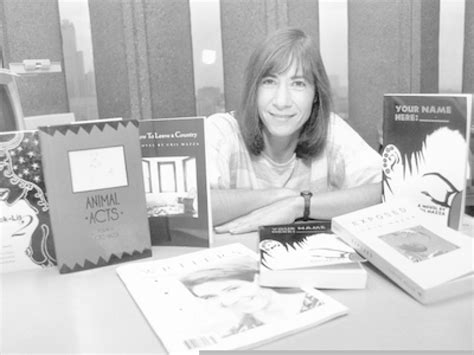A Quote by Samuel Johnson
No man is much regarded by the rest of the world. He that considers how little he dwells upon the condition of others, will learn how little the attention of others is attracted by himself. While we see multitudes passing before us, of whom perhaps not one appears to deserve our notice or excites our sympathy, we should remember, that we likewise are lost in the same throng, that the eye which happens to glance upon us is turned in a moment on him that follows us, and that the utmost which we can reasonably hope or fear is to fill a vacant hour with prattle, and be forgotten.
Quote Topics
Appears
Attention
Attracted
Before
Condition
Considers
Deserve
Excites
Eye
Fear
Fill
Follows
Forgotten
Glance
Happens
Him
Himself
Hope
Hour
How
Learn
Likewise
Little
Lost
Man
Moment
Much
Multitudes
Notice
Others
Our
Passing
Perhaps
Reasonably
Regarded
Remember
Rest
Same
See
Should
Sympathy
Turned
Us
Utmost
Vacant
Which
While
Whom
Will
World
Related Quotes
It considers not only how we relate to others, but how we relate to our ideas of others so that a completely phony, non-human replica of a dead wife can inspire the same feelings that the wife herself once did. That is a peculiarity of humans: We feel the same emotions for our ideas as we do for the real world, which is why we can cry while reading a book, or fall in love with movie stars. Our idea of humanity bewitches us, while humanity itself stays safely sealed away into its billions of separate containers, or "people.
We would willingly have others perfect, and yet we amend not our own faults. We would have others severely corrected and will not be corrected ourselves. The large liberty of others displeases us, and yet we will not have our own desires denied us. We will have others kept under by strict laws, but in no sort will ourselves be restrained. And thus it appears how seldom we weigh our neighbor in the same balance with ourselves.
How many attractions for us have our passing fellows in the streets, both male and female, which our ethics forbid us to express, which yet infuse so much pleasure into life. A lovely child, a handsome youth, a beautiful girl, a heroic man, a maternal woman, a venerable old man, charm us, though strangers, and we cannot say so, or look at them but for a moment.
How we view ourselves can often determine the perspective and degree in which we see others and the world around us. Each and every one of us has a view. Such a view, that it can shape the future of others and how they live, dream and look towards the future that we all hope is better and more fruitful than our past. This I believe is a common initiative.
In truth, politeness is artificial good humor, it covers the natural want of it, and ends by rendering habitual a substitute nearly equivalent to the real virtue. It is the practice of sacrificing to those whom we meet in society, all the little inconveniences and preferences which will gratify them, and deprive us of nothing worth a moment's consideration; it is the giving a pleasing and flattering turn to our expressions, which will conciliate others, and make them pleased with us as well as themselves. How cheap a price for the good will of another!
Being concerned about other people is especially relevant in today's world. If we consider the complex inter-connected ness of our modern lives, how we depend on others and others depend on us, our outlook will change. We’ll begin to see 'others' not as somehow distant from us, but as people we are in touch with, people close to us; we will no longer feel indifferent to them.
For you see, the face of destiny or luck or god that gives us war also gives us other kinds of pain: the loss of health and youth; the loss of loved ones or of love; the fear that we will end our days alone. Some people suffer in peace the way others suffer in war. The special gift of that suffering, I have learned, is how to be strong while we are weak, how to be brave when we are afraid, how to be wise in the midst of confusion, and how to let go of that which we can no longer hold. In this way, anger can teach us forgiveness, hate can teach us love, and war can teach us peace.
It is quite beyond me how anyone can believe God speaks to us in books and stories. If the world does not directly reveal to us our relationship to it, if our hearts fail to tell us what we owe ourselves and others, we shall assuredly not learn it from books, which are at best designed but to give names to our errors.
We Sioux spend a lot of time thinking about everyday things which in our minds are mixed up with the spiritual. We see in the world around us many symbols that teach us the meaning of life. We have a saying that the white man sees so little, he must see with only one eye. We see a lot that you no longer notice. You could notice if you wanted to, but you are usually too busy. We Indians live in a world of symbols and images where the spiritual and commonplace are one…We try to understand them not with the head but with the heart
Our sense of identity is in large measure conferred on us by others in the ways they treat or mistreat us, recognize or ignore us, praise us or punish us. Some people make us timid and shy; others elicit our sex appeal and dominance. In some groups we are made leaders, while in others we are reduced to being followers. We come to live up to or down to the expectations others have of us.
It is our destiny to live with the wrong as well as the right kind of citizens, and to learn from them, the wrong-minded ones, as much or more as from others. If we have not yet succeeded -after how many centuries?- in eliminating from life the elements which plague us perhaps we need to question life more closely. Perhaps our refusal to face reality is the only ill we suffer from, and all the rest but illusion and delusion. (p.26)
It is a painful thing to say to oneself: by choosing one road I am turning my back on a thousand others. Everything is interesting; everything might be useful; everything attracts and charms a noble mind; but death is before us; mind and matter make their demands; willy-nilly we must submit and rest content as to things that time and wisdom deny us, with a glance of sympathy which is another act of our homage to the truth.
Culture and society determined sexual desirability as what makes us important so long that it's part of our sensibility from birth.Little girls know. From around 2 or 3, the pretty ones already know how and why they get attention. And how quickly they learn to play it. Use it. And how quickly the rest of us figure out we don't have it.
If we only arrange our life in accordance with the principle which tells us that we must always trust in the difficult, then what now appears to us as the most alien will become our most intimate and trusted experience. How could we forget those ancient myths that stand at the beginning of all races, the myths about dragons that at the last moment are transformed into princesses? Perhaps all the dragons in our lives are princesses who are only waiting to see us act, just once, with beauty and courage.






































